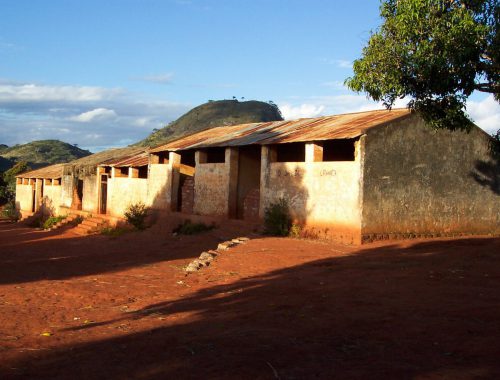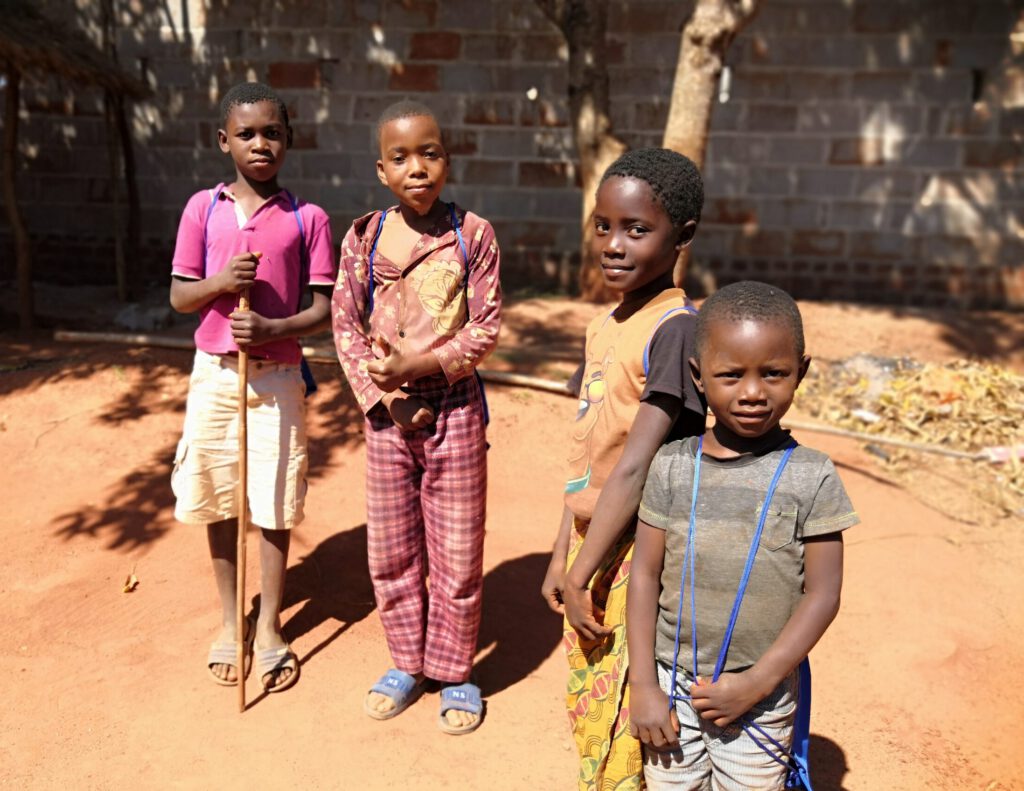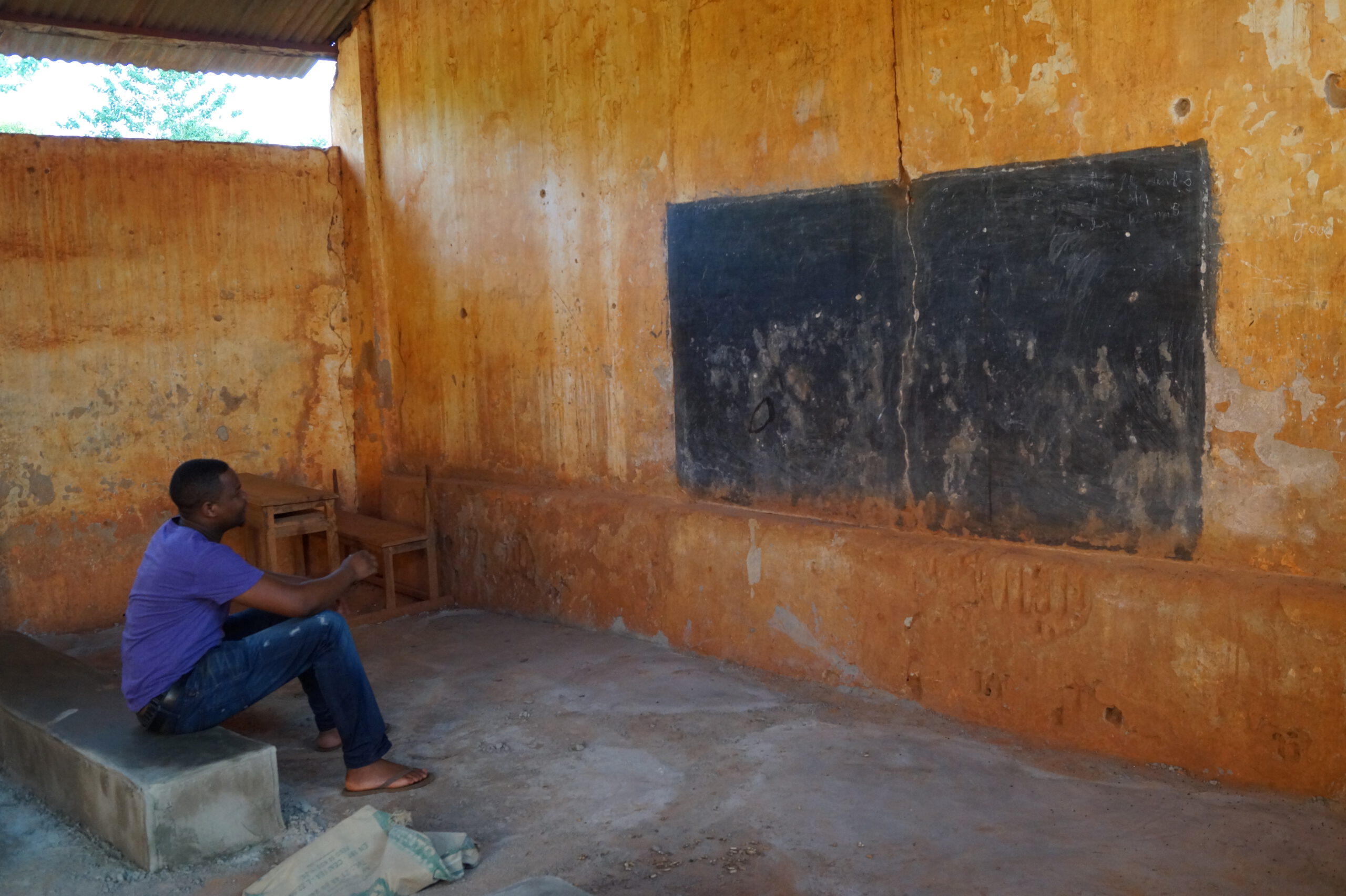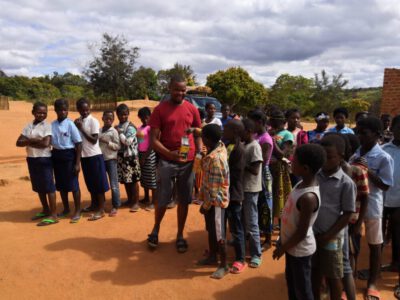I would like to tell you about my life while I was still in school.
This period of my life can be broken down into three parts. As my father had been serving as a pastor he was sent to minister in different districts. Meaning that I had to transfer from school to school:
first in Mocuba (grades: 1 to 3), then in Ile (grades 4 to 10) and lastly in Gurue, which I had to transfer to because Ile didn’t offer grades 11 and 12.

Thinking back on my time during school I mostly remember the things I experienced and the things I had to endure, more than my actual studies.
It is not my intention to demonstrate a typical student´s life in Mozambique, but to share my own personal journey.
With that in mind I would first like to share 3 pleasant memories with you.
One of my first and vivid memories of school takes place in elementary school in Ile: At the end of every school day, we sang together: “School is over! We are going home now!” (in Portuguese: „A nossa aula já acabou, agora vamos para casa. “)
Then in chorus we called out to our teacher: “Thank you Mr./Mrs. Teacher, see you tomorrow!” („Adeus Sr/a Professor/a, até amanha demanha! “).
Every Mozambican knows exactly what I´m talking about!
The second precious memory was the day we made our own lemon juice in class.
I’ll never forget that!
The third memory was the time at the end of every school year. All of the parents gathered at school waiting in suspense for the results of their children´s exams and waiting to hear if their child would be able to graduate to the next grade.
These were major moments for me. The joy of receiving a positive result and being able to pass on to the next grade but also the tears when learning that I had flunked and would be repeating the school year.

Then we were divided in to two groups the “clean” ones and the “dirty” ones, possibly receiving punishments for being dirty.
Afterwards we all sang the national anthem.
Then class by class we were called to go to our classrooms in an orderly row.
We were also obligated to go to school on Saturdays. But not to learn in class, instead we had to take part in “activities” such as building pit latrines for our school or helping our teachers build their homes.
There were many different things throughout the year to attend to.
If anyone broke any of the school´s rules made by the teachers or principal they were beaten, punished with hits to the hands or bare back.
Whoever came late to school or forgot their homework the penalty was 10 hits to their hands. For this we were required to bring rods from home these same rods were later used for lessons at the chalkboard.
Some teachers even made us look for little rocks on which we had to kneel on while holding up our arms. If our arms grew weak and dropped, we received additional beatings. The worst part was that these punishments were conducted in front of the entire class which made us feel deeply ashamed.
After a while we got used to these harsh circumstances. But in the beginning these experiences were so awful that no one dared to speak in class, unless we were forced to.
The times we hadn´t done our homework we felt like we had to lie or make up excuses like a sickness. And because we didn´t have anyone to help us with our homework we stayed having imaginary stomach aches. Sometimes we would tell our parents that we were going to school when in fact we would get away to the river to swim or using the wet rocks as slides.
When speaking of classrooms, you mustn´t picture a typical classroom common in most western countries but imagine an empty room with random rocks and bricks on which we sat. With our notebooks on our laps there we sat and wrote.
Between grades 8 to 12 the conditions at school significantly changed, as the physical punishments stopped.
Instead, psychological punishments were implemented. Teachers would often insult us or throw us out of class. Sometimes our legal guardians were summoned to school. But we would always prefer an uncle to accompany us so that we wouldn´t receive additional beatings at home from father.
These are the school days I remember.
When my father visited me here in Germany, I asked him about my school days. But his response was that his school days were even worse and in comparison, my generation hadn´t suffered at all not even a little.
My school days started 20 years after the colonial power Portugal had left Mozambique (Mozambique became independent in 1975). Following came a 16-year long civil war. From which our parents and teachers are certainly still traumatized by. Surely our teachers had been so hard on us because they themselves had to suffer so much.
If you would ask me today if I still hold a grudge towards my teachers my answer would be that I do not. There is one simple reason for that: They didn´t know what the best upbringing would be for us, they thought their way was the best option.
But by the Grace of God, we are here to reevaluate and rectify my country´s method of schooling.


